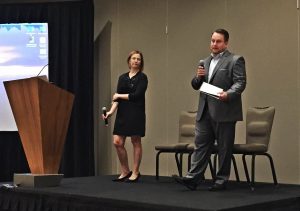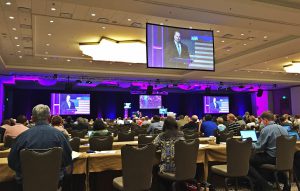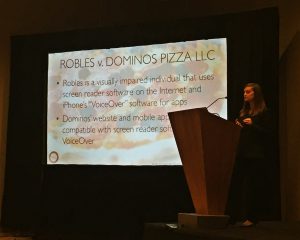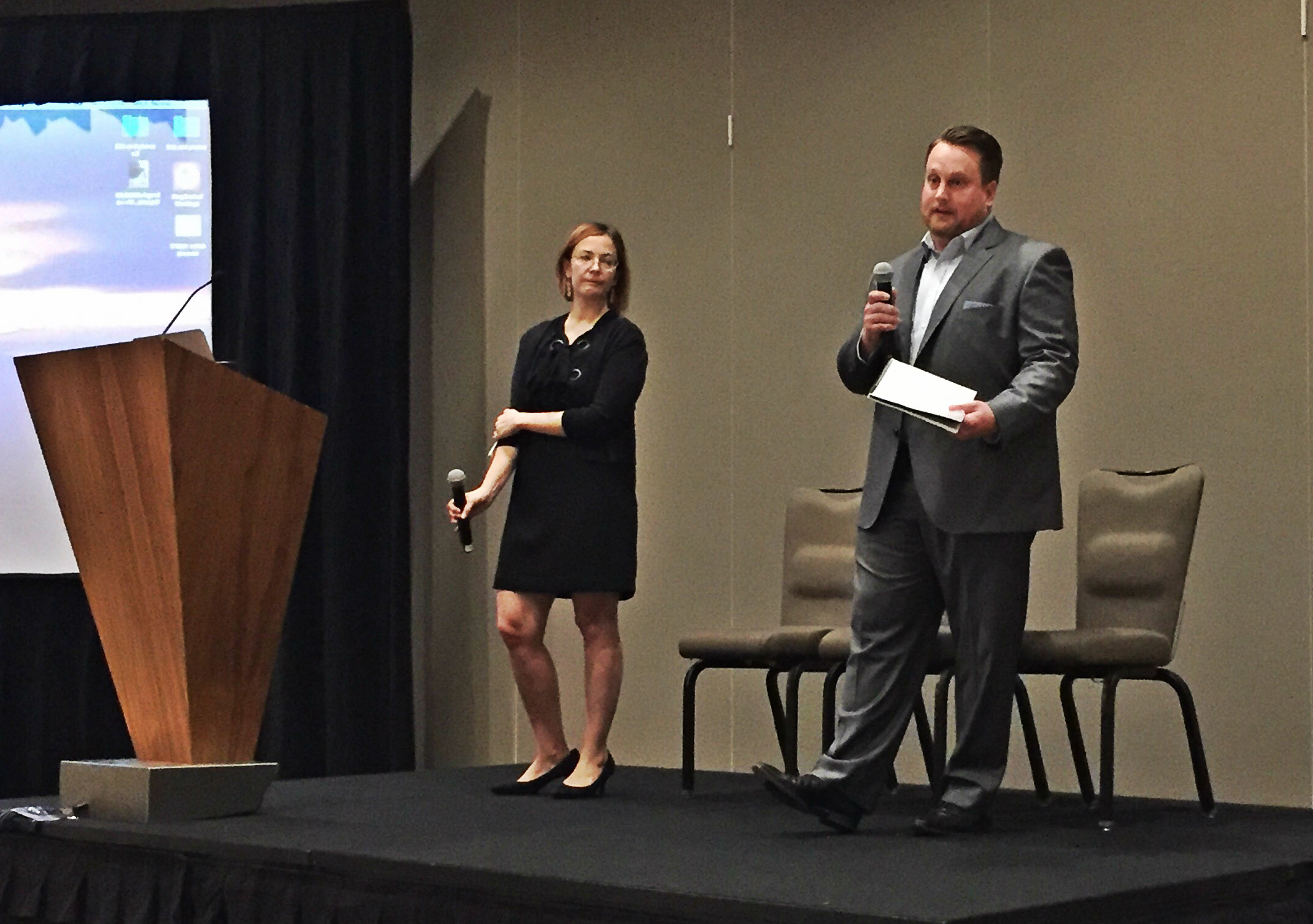Mitch and I had the pleasure of traveling to Austin, Texas last week for the CMLS Legal Seminar as part of the 2017 CMLS Conference. The seminar had a top-notch lineup of speakers that did a great job of analyzing current legal issues in the MLS industry. (Note that we might be biased because we helped plan the day and presented!) I thought it might be useful to provide a quick, high-level summary and note what my key takeaways were from each session.
Managing Discussions: Antitrust and Other Landmines
The seminar kicked off with a session on antitrust lead by David Sanders, General Counsel for the Greater Las Vegas Association of REALTORS®. Understanding the basics of antitrust and how folks in the MLS industry can avoid potentially problematic situations is very important.
- MLSs should understand and avoid even the appearance of any conduct that could give way to meritless claims of price fixing, group boycotts, dividing the market, and tying.
- MLS should be careful in discussions, particularly those that involve pricing and other potentially problematic subject matter (if you’re going down the collaboration path, make sure to engage an attorney early on).
MLS Database Copyright & Copyright Office Challenges

Chloe Hecht, Senior Counsel, Legal Affairs for NAR, along with Mitch, provided us with a summary of, and discussion about, the Copyright Office’s requests for information regarding registration of MLS automated database copyright applications. Recently, the Copyright Office has raised concerns with some MLS’s automated database copyright applications.
- Chloe and NAR staff have started a dialogue with the Copyright Office regarding this issue and how it may impact MLSs. NAR has negotiated a grace period during which the Copyright Office will not take any action on previously filed copyright applications.
- For more details, see here. Stay tuned for more information and updates on this breaking issue in the industry.
The Practical Implications of Consolidation
Cheri Andrews, Vice President of Legal Affairs at Bright MLS, shared some of her thoughts and recommendations for working through the business and legal issues associated with consolidation. Cheri shared some anecdotes of her recent experience helping to set up Bright MLS. She highlighted some key considerations and provided some great checklists of tactical items that her organization has had to work through during the consolidation process.
- Business considerations include: branding, location, infrastructure, staff and other employment issues
- MLS considerations include: rules and regulations, data standards, MLS systems, and vendor agreements
Who May Use What Data and Why

Mitch provided a lively presentation (including fun .gifs) on who may use what data and why under current NAR policies. Depending on who is requesting the data and what their intended use of that data is, an MLS can figure out the appropriate data set, and if other conditions will apply (such as needing to set up an opt-in or opt-out). After providing a framework for analysis of different data uses, Mitch walked through examples of the most common data uses, such as IDX, VOW, and syndication.
- MLSs can use these threshold questions in figuring out who can use what data:
- (1) Is the request for data by a participant?
- (2) Is the intended use of data for the defined purpose of MLS?
Strategic Discussion: Broker Information Security
Alon Chaver, CIO of HomeServices of America, lead a strategic discussion regarding the process his company has taken with regards to dealing with information security requirements. Alon provided a great overview of the current landscape of real estate information, data portability, and the increasing vulnerability of information management systems.
- HomeServices maintains a complex vendor assessment process to review each vendor’s controls and information securities policies and procedures.
- HomeServices has started expanding how they define “confidential information” in contracts with their vendors to include personally identifiable information, user/broker/agent generated content, and behavioral information (if not aggregated/anonymized).
MLS of Choice
Brad Bjelke of UtahRealEstate.com, Justin Haag of Northwest MLS, Brian Schneider of Arent Fox, and Chris Osborne of Foster Pepper led a discussion on what’s now been coined as the “MLS of Choice” policy issue. CMLS wrote and released a white paper discussing this issue earlier this year. NAR’s MLS Technology and Emerging Issues Advisory Board released its meeting minutes, which contains proposed revisions to NAR MLS Policy Statements 7.42 and 7.43.
- Under current NAR policy, MLSs may require all of a participant’s offices located in its shareholder association’s jurisdiction to participate in MLS service. The current recommended policy language would remove that option for MLSs. (See proposed changes to Policy Statement 7.42.)
- Additionally, if approved, the new policy will require MLSs to offer a no-cost waiver to participants for sales licensees and licensed/certified appraisers within an office if the participant can demonstrate that the waiver recipients subscribe to a different MLS in which the participant participates. The proposed policy permits MLSs to require waiver recipients and participants to sign a certification of non-use. (See proposed changes to Policy Statement 7.43.)
- The proposed policy will be put to a vote in November at NAR’s Multiple Listing Issues and Policies Committee.
Two Grey Gooses
We wrapped up the morning session with Rob Hahn of 7DS Associates. Rob discussed what he considers to be the two “grey goose” issues of the MLS industry, meaning issues that are foreseeable, predictable, and could have a large impact.
- Issue #1: whether real estate agents are independent contractors or employees, and how the “agent team” dynamic could influence this issue. If agents are employees, MLSs will need to look at how it may impact compliance/discipline for subscribers, that there may be fewer subscribers, and if agents will be considered licensed assistants.
- Issue #2: potential ways that a board of director member may be breaching their fiduciary duties. MLSs will want to make sure they help their directors understand their fiduciary duties and should consider using an advisory council for certain types of decision-making.
MLS Collaborations: Avoiding Legal Dysfunction
We picked up the afternoon attorney-only session with Chris Osborn (Foster Pepper) and Mitch, where they provided a detailed overview of the collaboration process and the key advisor roles. They also highlighted different collaborative models and provided a few different ideas for how to approach collaborations. Here are the key takeaways:
- Engage a facilitator and legal counsel early in the collaboration process (and other key advisors).
- There is a spectrum of possible collaborative models — informal, data share, system share, join an existing MLS, or create new MLS.
- Be aware of the common pitfalls (e.g., antitrust, tax, trademark, securities, exit strategy, etc.) at the outset and work through major issues early.
Data Privacy and Security
Building on Alon’s presentation from the morning session, Marinda Neumann of Lotus Law Center provided a deeper dive on data privacy and data security. Marinda provided a great overview of the patchwork of laws in this area (there are a lot!).
- MLSs should ensure that they are using reasonable security procedures in their businesses and be aware of particularly sensitive information, such as personally identifiable information.
- Given the recent large data security breaches, be aware of notification laws and make sure you’re taking the proper care to dispose of old data.
Website Accessibility and ADA Case Law Update

I provided a brief update on what’s happening with regards to litigation related to website accessibility and compliance with the ADA. To date, the DOJ still has not adopted a formal standard for accessibility for websites.
- Litigation continues in this space and has grown exponentially over the past few years. There is a body of jurisprudence developing in this area, however courts are split in rulings and inconsistent.
- The technical standard, WCAG 2.0, developed by the World Wide Web Consortium seems to remain the front-runner for a standard; DOJ has used WCAG 2.0 in settlements and some courts are using it as well.
- MLSs should consider assessing their websites for compliance and address the issue in vendor contracts, if possible.
Copyright Infringement Mitigation
Chris Osborn (Foster Pepper) began this session discussing some high profile cases related to copyright infringement, VHT, Inc. v. Zillow Group, Inc., Stross v. Redfin, and Mavrix Photographs, LLC v. LiveJournal, Inc., among others. Justin Haag (Northwest MLS) provided some insight on how the DMCA has changed. Finally, Brian Schneider (Arent Fox) gave some useful tips for MLS’s in responding to potential copyright infringement.
- Anyone that filed a paper registration for a DMCA designated agent will need to re-file using the new electronic system by December 31, 2017 (see my previous post where I briefly discuss this change).
- MLSs may consider creating resources, i.e. educational materials, to help its members understand the benefits of the DMCA safe harbor.
- If an MLS is faced with a potential copyright infringement claim, it should make sure to notify its insurance carrier as part of its response.
Expiration of DOJ Settlement and Conditions of Participation
Ralph Holmen, Associate General Counsel for NAR, provided a detailed history of U.S. v. National Association of REALTORS® and how the current VOW policy was developed. The DOJ settlement will expire in November 2018. Brad Bjelke (UtahRealEstate.com) and Mitch provided some thoughts on the future of the MLS participation rule and how VOW policy may evolve in the future.
- NAR will be starting a conversation regarding if and how the VOW policy and MLS participation rule should evolve.
- Even though the settlement is expiring, VOWs must be still be treated the same as a traditional, brick and mortar brokerage office.
As you can see, we had a packed day with some really great sessions. A BIG thank you to the amazing organizing committee who graciously volunteer their time and the awesome speakers for helping us provide a quality program! If you weren’t able to join us this year, hopefully you found this summary interesting and helpful.
Thanks for reading!
Camille


